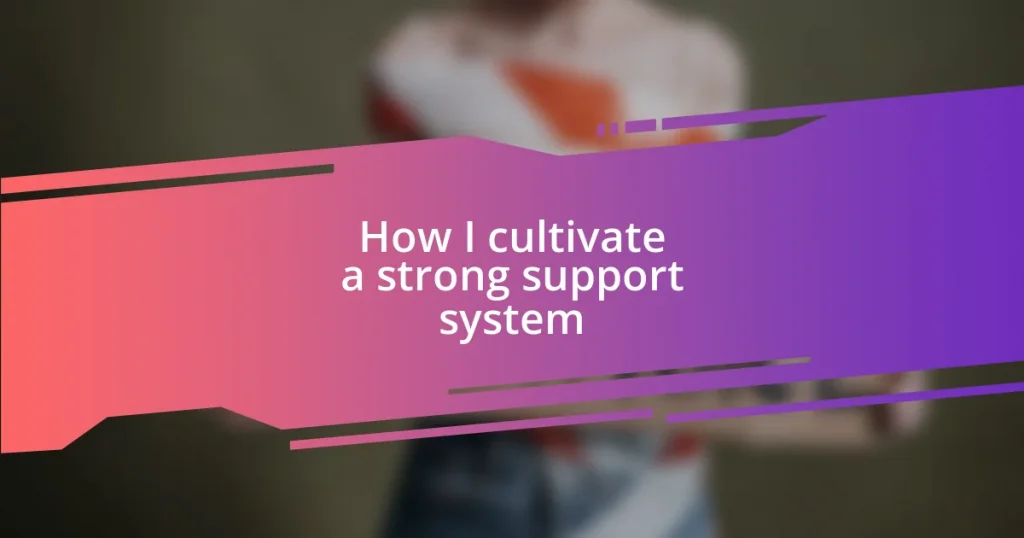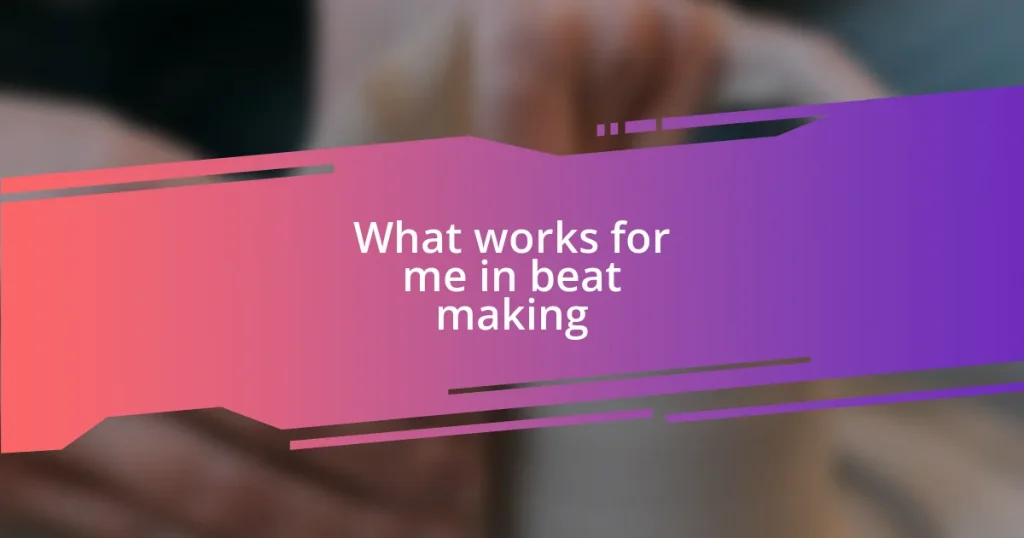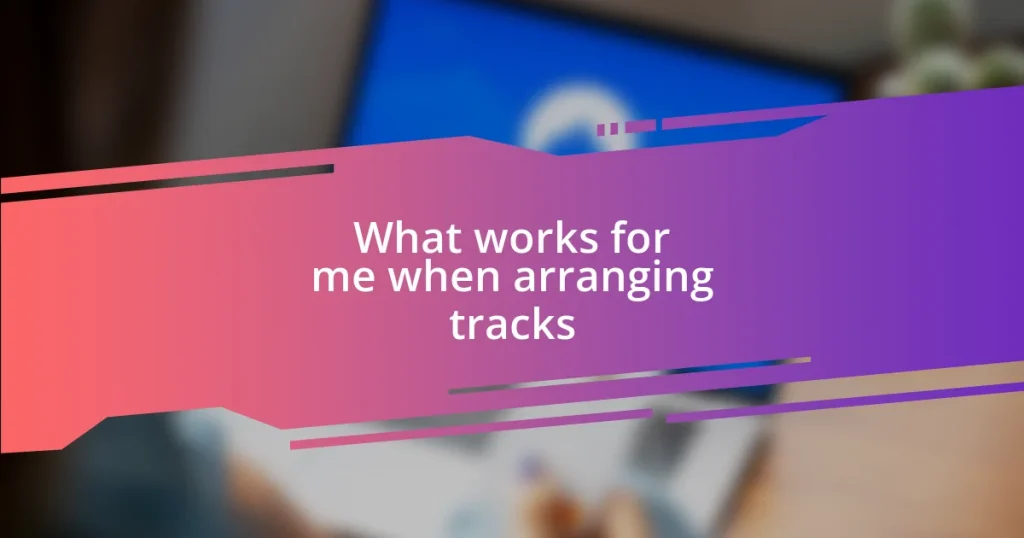Key takeaways:
- A strong support system enhances resilience, providing emotional and practical help during life’s challenges.
- Relationships span different layers, from close family and friends to acquaintances and mentors, each offering unique types of support.
- Maintaining connections through regular check-ins and adapting support to changing needs fosters deeper, more meaningful relationships.
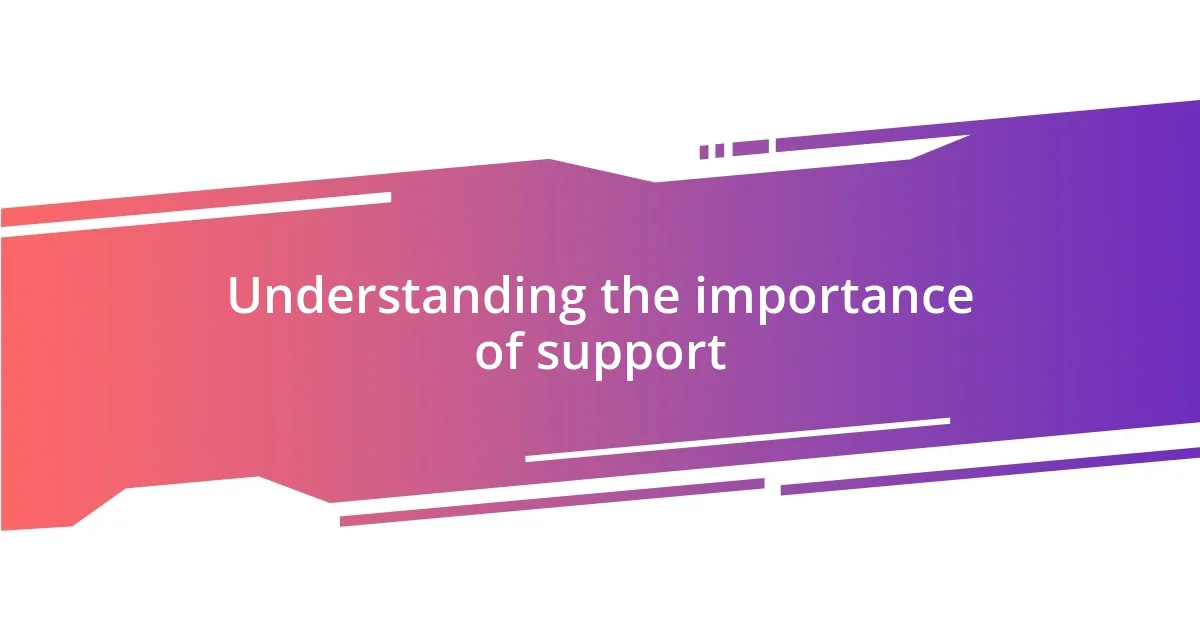
Understanding the importance of support
Support is the backbone of resilience, isn’t it? I remember a particularly tough time when my friend stepped in to lend a listening ear. Just knowing someone cared made all the difference and reminded me that I wasn’t alone in my struggles.
Many people underestimate the power of simply being there for someone. When I faced a major life change, my co-workers organized a small gathering to offer their encouragement. That gesture created a safe space for me to share my fears, reinforcing my belief that having a supportive network is essential for navigating life’s ups and downs.
Think about your own support system. How many people do you rely on for guidance, encouragement, or a place to vent? From my experience, a solid support network not only provides practical help but also fosters a sense of belonging. This connection can spark motivation and enhance mental well-being, reminding us that we’re inherently part of a larger community.
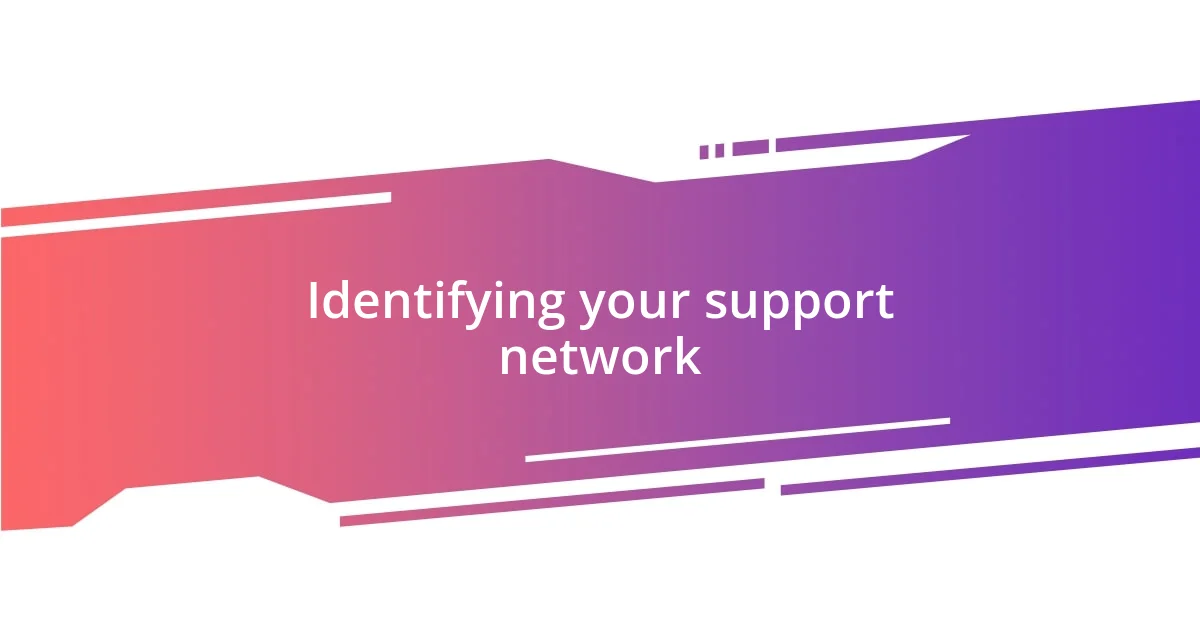
Identifying your support network
When I started to identify my support network, I realized it encompassed different layers of relationships. There’s the inner circle—family and close friends—who know me intimately and offer unconditional support. I vividly recall a moment when my sister dropped everything just to help me move during a chaotic time in my life; that gesture highlighted how crucial these relationships are.
However, the outer rings are equally important. These include acquaintances, mentors, and even colleagues who provide different perspectives and resources. For instance, reaching out to a colleague after work for advice led me to a resource that transformed my approach to a challenging project. It showed me that support doesn’t always have to come from those who are closest to us—it can also emerge from casual connections.
It’s essential to take stock of who you can rely on during both joyful and challenging times. I often reflect on how my book club serves as a support network, offering not just literary insights but also emotional encouragement through shared stories and experiences. It’s all about recognizing the distinct roles each person plays in my life and appreciating the diverse support they provide.
| Support Network Layer | Description |
|---|---|
| Inner Circle | Family and close friends who offer unconditional support and deep emotional connections. |
| Outer Ring | Acquaintances and mentors who bring fresh perspectives and practical resources. |
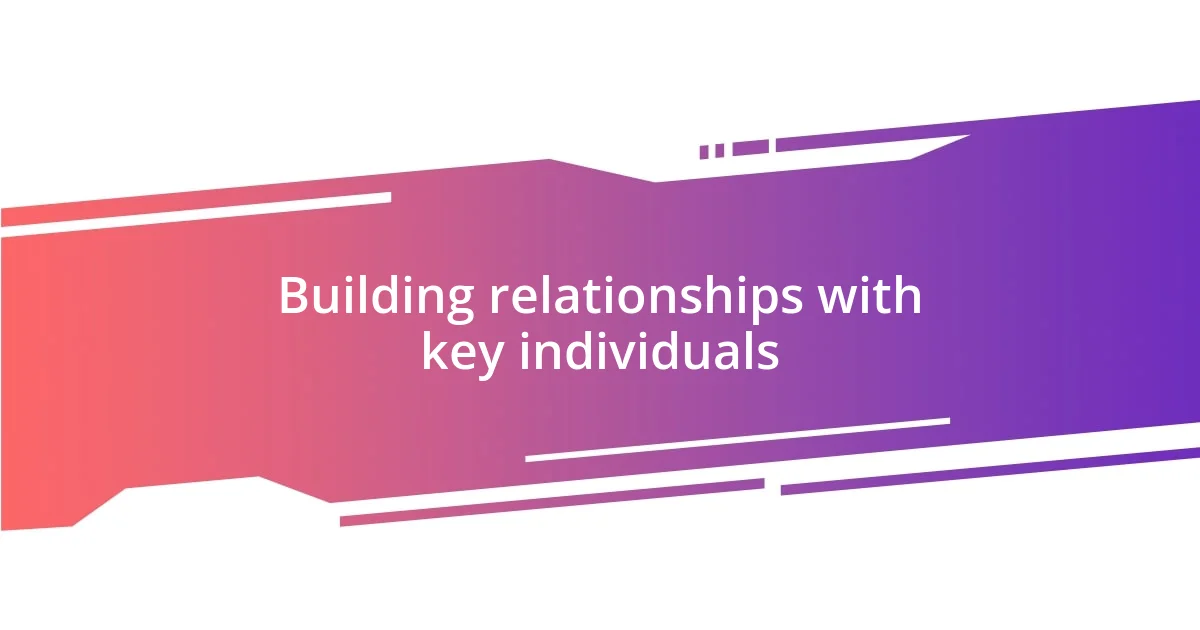
Building relationships with key individuals
Building relationships with key individuals is like nurturing a garden; it requires time, patience, and ongoing effort. From my experience, I’ve found that the first step is to reach out and engage with people who inspire or support me. For instance, I remember attending a networking event years ago, feeling a bit out of place, yet I forced myself to approach someone who seemed approachable. That conversation blossomed into a mentorship that has guided me through significant changes in my career.
To cultivate these relationships, I focus on the following strategies:
- Show genuine interest: Ask questions and listen actively. I find that people appreciate a sincere conversation about their passions and experiences.
- Offer help when possible: I often volunteer my skills or support when a friend or colleague is in need, which has led to building deeper trust.
- Follow up regularly: Whether through messages or casual meet-ups, staying in touch reinforces the connection and shows that I value our relationship.
I’ve found that investing in these connections goes beyond occasional conversations; they become a vital part of a robust support system that enhances both my personal and professional life.
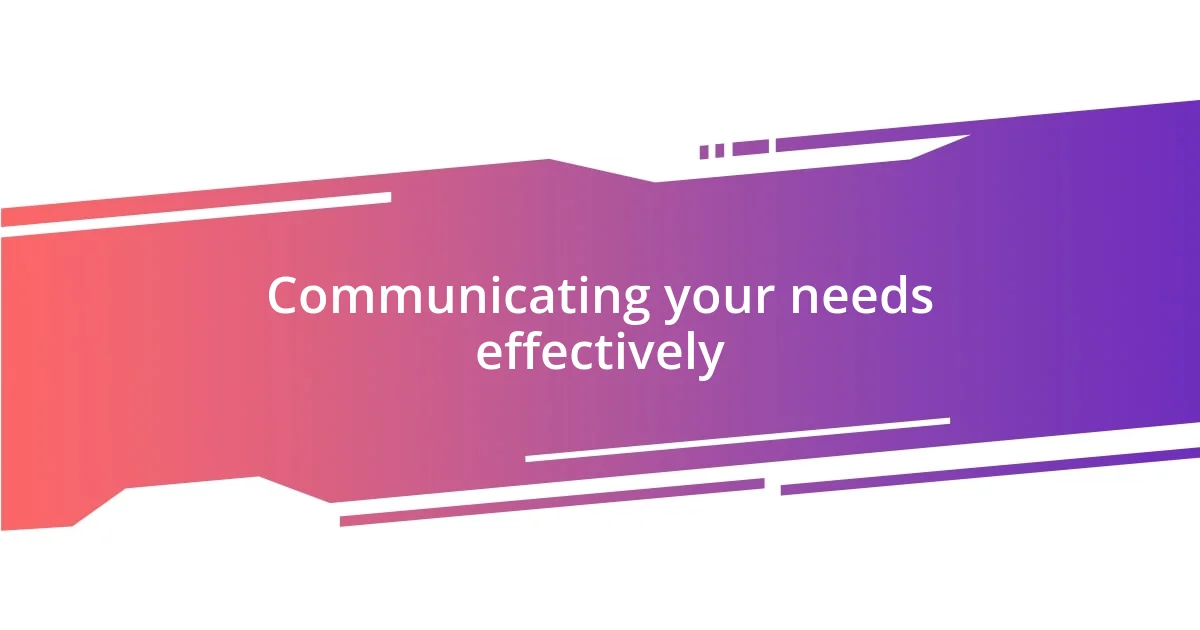
Communicating your needs effectively
Communicating my needs effectively has been a journey of self-discovery. I recall a time when I hesitated to express what I was feeling to my friends. I learned that no one is a mind reader, and my needs often went unmet simply because I didn’t vocalize them. Finding the right words can be daunting, but there’s power in vulnerability.
I try to be clear and honest when I communicate my needs. Once, I found myself overwhelmed with work, and instead of pushing through in silence, I reached out to a close friend and shared how I was feeling. To my surprise, she offered not only emotional support but practical help with my workload, which alleviated so much stress. It taught me that when I articulate my needs, it opens the door for others to step in and help.
Active listening is also a crucial part of this process. When I share my needs, I also make an effort to truly hear what others are saying. This reciprocal exchange strengthens our relationships. Have you ever noticed that some of the most meaningful connections arise from just being open and receptive to each other’s thoughts? It makes the support system feel more like a partnership rather than one-sided help.
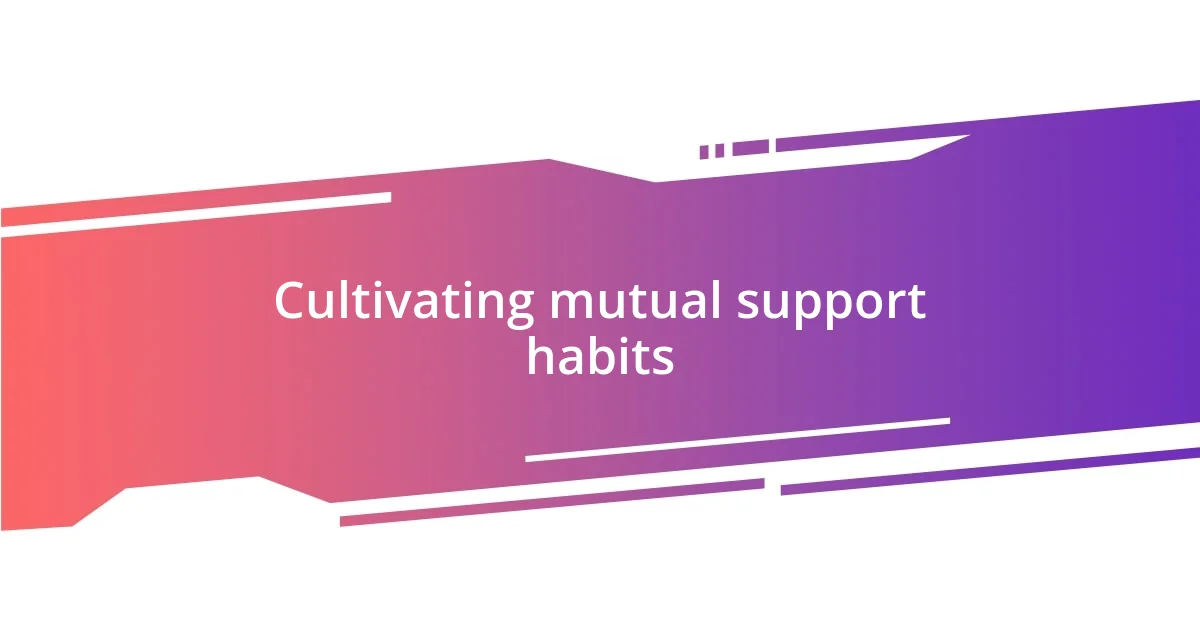
Cultivating mutual support habits
Cultivating mutual support habits involves an intentional practice of giving and receiving. I recall a time when a close friend faced challenges in her personal life. Instead of simply offering platitudes, I decided to show up—literally. I made a point to visit her regularly, bringing homemade meals and a listening ear. These small acts reinforced our bond and established a rhythm of support that benefited us both.
I believe that mutual support thrives on shared experiences. For instance, when I joined a local running club, I didn’t just run; I celebrated others’ achievements too. By cheering teammates on and cheering for my own progress, I felt we were building a community grounded in encouragement. Have you ever thought about how celebrating others can foster a culture of mutual support? It’s a powerful reminder that when we lift each other up, we all rise together.
Moreover, consistency is key to nurturing these supportive habits. I set aside time each week to connect with friends, whether for coffee or a phone chat. One week, I made a point to call three friends who I knew had been struggling. Reflecting on those conversations, I realized how mutual support becomes a cycle—we uplift each other, creating an ongoing loop of encouragement and connection. It’s like watering a plant; consistent attention ensures it thrives. Wouldn’t you agree that these habits can transform mere acquaintances into cherished allies?
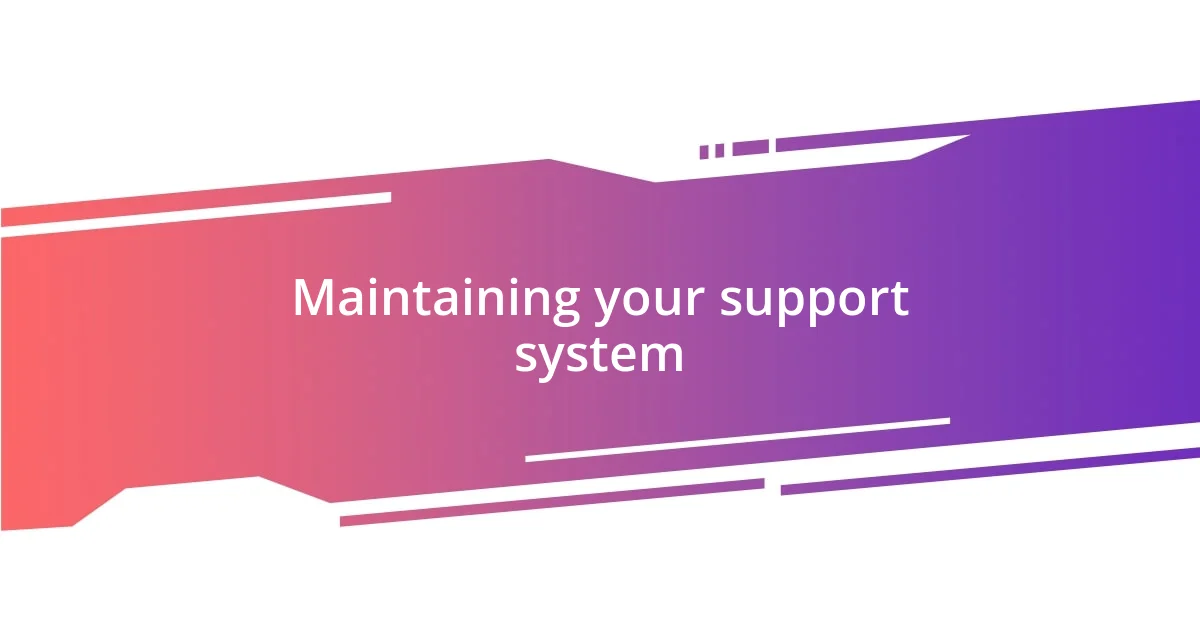
Maintaining your support system
Maintaining your support system requires ongoing effort and attention. I’ve found that regular check-ins are a vital part of this process. For instance, I’m intentional about texting my close friends just to see how they’re doing. It’s a simple gesture, but it shows that I care and am present in their lives. Have you noticed how just a little message can brighten someone’s day? It’s a reminder that genuine friendship is built on consistent care.
Another aspect I focus on is being available during tough times. I remember a difficult period when a friend faced a major loss. I made it a point not only to reach out but to physically be there for her, sharing quiet moments together. Sometimes, it’s not about finding the right words but simply showing up and providing a comforting presence. Have you ever experienced the healing power of someone just being there for you? These shared moments forge deeper connections and reinforce the strength of your support network.
Lastly, I encourage being adaptable in your support system as life evolves. Friends’ needs change, and so do our own. I’ve had friends transition through various stages like parenthood or career shifts, and learning to adjust my support accordingly has been crucial. For example, a close friend became a new mom, and I shifted from casual hangouts to offering to babysit so she could have some time for herself. This flexibility not only strengthens the bond but also enriches our connection as we navigate life’s ups and downs together. How do you adapt your support for those you care about? It’s an essential question that can lead to stronger, more meaningful relationships.










